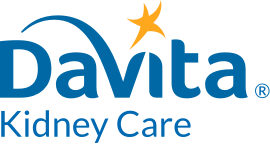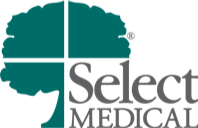
Hypertension
According to the U.S. Centers for Disease Control and Prevention (CDC), roughly half of all Americans live with high blood pressure. Global numbers from the World Health Organization (WHO) show that many are unaware that they have the condition. It’s a common disease, and it can have an outsized negative impact on overall health if left unchecked. Here we’ll dive into details about what hypertension is along with relevant risk factors and more.
What Is Hypertension?
Hypertension–also known as high blood pressure–is a condition in which a patient has consistently high blood pressure readings. The pressure of blood is measured in millimeters of mercury (mm Hg) via two numbers: pressure in the arteries when the heart beats (systolic), and pressure in the arteries between heartbeats (diastolic). When considered together, blood pressure is considered to be high when the reading is equal to or greater than 130/80 mm-Hg two or more times, when taken on separate occasions.
In high blood pressure, the force of blood against artery walls is consistently higher than ideal. If left untreated, this can increase the risk of serious health problems, like kidney damage, heart attack, and stroke, among others. Due to the risks, regular checkups with a healthcare provider are recommended in order to monitor blood pressure and catch any increases before they escalate.
Though high blood pressure is commonly thought of as a heart condition, in reality, it is a condition that can affect nearly every organ in the body. When blood vessels are damaged, they cannot carry enough blood, and therefore, oxygen, to tissues and organs. In the kidneys, the damage from consistently high blood pressure can lead to chronic kidney disease (CKD).
Symptoms of Hypertension
Hypertension doesn’t have many obvious symptoms until it is very progressed. This is why it’s often referred to as the “silent killer”–if it isn’t already diagnosed, you likely won’t know you have it. All the same, damage is still occurring within your body, whether you’re seeing symptoms or not. Having periodic readings done is the only real way to know if you have high blood pressure.
Some who have advanced hypertension may see symptoms such as headaches, shortness of breath, fatigue, blurred vision, dizziness, nausea, and chest pain or nosebleeds. However, these are not reliable signs, and if they do manifest, they are evidence of a severe, even life-threatening case. Without treatment, hypertension could lead to stroke, heart attack, aneurysm, metabolic syndrome, vision problems, and kidney disease.
Having a professional healthcare provider measure your blood pressure is the only way to know if you have hypertension. If the condition isn’t treated, it can cause other serious health conditions.
Causes of Hypertension
There are a range of causes linked to hypertension, some are within the control of the individual, and some are not. Some of these causes or risk factors are:
-
Genetics/family history
-
Age
-
Weight
-
Diet
-
Lack of physical activity
-
Smoking
-
Excessive alcohol consumption
-
Environmental factors
-
Stress
-
Sleep apnea
-
Existing kidney disease or diabetes
In general, diets high in salt and unhealthy fats and low in fruits and vegetables pose a problem and could contribute to the development of hypertension.
Treating Hypertension
Timely treatment of hypertension is an absolute must in order to manage and lower the risk of developing other serious health conditions, like kidney disease. This may include prescribed medications that help to maintain a lower blood pressure, along with diet and lifestyle changes. Your healthcare provider will be able to help you find the best options to treat hypertension effectively and in line with your unique needs. When you meet with our nephrology doctors, they can work with you to lay out a good treatment plan while also giving attention to the effect of hypertension on your kidneys.
Your Local Nephrologist in Akron, Ohio
At Northeast Ohio Nephrology Associates, Inc., we are here to help individuals dealing with chronic kidney conditions, including hypertension. Our skilled nephrology doctors can help patients to develop personalized treatment plans, providing cutting-edge therapy options. At the same time, they can assist patients with practical needs as well, like lifestyle modification, education, and patient support. Contact us today to learn how you can become a patient and begin your journey to better kidney health!
Our Affiliates
Contact Us
(*) - Required field








